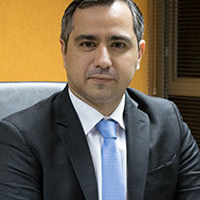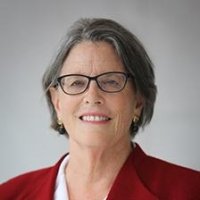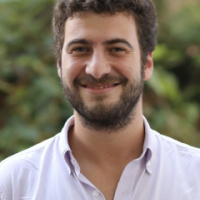WEBCAST | Healthcare in a Post-COVID-19 Brazil: Pathways for Public-Private Partnerships
On May 27, the Wilson Center’s Brazil Institute and the Institute for Health Policy Studies hosted a discussion of what better integration of the public and private healthcare systems could mean for Brazil, during this pandemic and beyond. Brazil, which guarantees universal access to healthcare through its public system (SUS), is also home to the second largest private healthcare market in the world. The two systems essentially operate in parallel, and have often competed against each other. In recent weeks, however, the COVID-19 crisis has shown that public-private collaboration is possible, and brings real benefits—not only in the immediate context, where collaboration means more hospital beds, doctors, and equipment made available where Brazil needs them most; but also in the longer run, where public-private partnership can help drive innovation and improve efficiency. The panelists discussed the benefits of public-private partnerships, and what obstacles, such as Brazil’s stark inequality and the need for improved management within the systems, must be addressed.
Selected Quotes
Leandro Fonseca
"During this COVID-19 pandemic, [the] Brazilian population is becoming aware that prosperous nations are the ones that provide better healthcare for their population. There is a more clear understanding outside [of the] healthcare environment that health and wealth are intrinsically connected."
"Budget constraints in Brazil will naturally grant room for private investments in healthcare provision. Governments will be more open to public-private partnerships in healthcare, they will be forced by the fiscal constraints to be more pragmatic and less ideological in order to provide better solutions in the coming years."
"Politicians and the public sector in general don't know how to make efficient public-private partnerships in healthcare. The governance of the public system is fragmented among more than 5,000 municipalities, 26 states, one federal district, and the federal government. But more importantly, the bureaucracy is brutally complex, with several norms that make it very difficult to implement new policies and new institutional arrangements."
"There is a large room for a simpler patient pathway with a more efficient interaction between the public and the private sectors on healthcare provision. It is possible to avoid duplication of efforts, the waste of resources, and to overcome possible inequities with a proper design. Deepening into patient pathways analysis seems a good first approach to identity where public and private sectors could have a more efficient integration."
"We have to deal with fragmentation as a fact…The public system is fragmented, the private system is also fragmented. There are more than 700 private health insurances, for example. I believe that dealing with this fragmentation but working on how to [make] this system more patient-centric would be a better way to deal with this kind of fragmentation."
Ana Maria Malik
"With pandemic, we have a seen a low occupancy rate in private beds, and so this means inefficiency, because they are there and they are not being used, so they are not being paid for, and the personnel is still there and the whole infrastructure is also there."
"In some cases, there is the issue of how are those private beds going to be paid for? …Issue number one: you cannot improvise ICU beds, either they are there with the infrastructure and personnel and stuff; or forget about it, because they are going to be dangerous, hazardous for those who use them. Number two: they don't cost a lot. So, you will have to discuss the price and the costs. But in Brazil, the cost of healthcare is also a huge secret."
"What we see is that, for instance, high complexity and high cost [procedures] in Brazil are very much financed by SUS [the national healthcare system]. SUS finances transplants, SUS finances oncology. Of course, there are some private payers that do that, but it's mostly SUS.”
"We have a very short length of stay of public officials. Until the last [health] minister, who was as a minister for 28 days, the average was 16 months; but this is not only a federal thing…If you look at the states and if you look at the municipalities, it's even bigger the rotation that you have. So, one of the problems in terms of [management] culture is: how do you build a long-term relationship?"
Joel Velasco
“We want to develop a next-generation health system in a socially-conscious way.”
“We identified and created partnerships with charitable organizations and local government with a special focus on supporting those vulnerable communities, and increase in access of COVID-19 testing and treatment…Through these collaborations, we are providing additional beds to the public health system in cities large and small, funding production and purchase of testing, of equipment… we’ve hired over 150 low-income workers, costureiras [seamstresses] to produce nearly half a million masks that we are distributing in our communities and of course, we are doing what a lot of companies are, donating food and supplies to those who are in need.”
“We have to address how does this get funded? There is no one-size-fits all solution. I think Brazil is too large, too complicated—just like the United States—and there’s not going to be a single-payer, single-line, single-whatever, silver bullet that’s going to solve this problem. What it’s going to come down to is how do we fund this?”
“The word that we need to focus on is integration.”
Maureen Lewis
“This public-private issue… has been so ideologically charged that it has been very hard to have a coherent conversation. But I think that COVID-19 has really made a big difference and I see a lot of parallel between the United States and Brazil in terms of the kind of things that has played up.”
“So those three kinds of fragmentation, at the municipal level, at the nonintegrated care level, and between public and private, really creates, I think, an environment that is very difficult.”
“The private sector is incredibly innovative. You find everything in Brazil in terms of the ability of care. Some of it’s very high-end, but some of it is very responsive to certain segments of the market, and you don’t find this very many countries.”
“I think with the private sector, the kinds of things you have been talking about of how you reimburse, quality questions, how you oversee, is going to be really critical to making public-private collaboration a much bigger issue, much more effective way of delivering services.”
“It’s really a question of having and using data and using it for management purposes. I think it would help to break down the bureaucracy, I think it would help with creativity…I think this data question becomes really important for the future, and I hope COVID-19 will be the impetuous for changing a lot of things that don’t work and building on the things that do.”
Miguel Lago
“Brazil is the only country with more than 100 million people to offer free health services to all its citizens.”
“We have not only a very strong public sector, but we also have a very strong and vibrant private sector that covers 22 percent of the Brazilian population.”
“When we take a look [at] the shares between public and private on health expenses, we can see that Brazil invests 3.8 percent of its GDP on the public system, while the average for the OECD is more like 6.6 percent. Which means that we have a bigger share in the private expense than in the public expense. Even though we have a public system that is ambitious enough to cover 200 million people.”
Speakers



Senior Vice President of International Relations & Head of Latin America, UnitedHealth Group

Moderators

Senior Director, Albright Stonebridge Group

Hosted By

Brazil Institute
The Brazil Institute—the only country-specific policy institution focused on Brazil in Washington—aims to deepen understanding of Brazil’s complex landscape and strengthen relations between Brazilian and US institutions across all sectors. Read more

